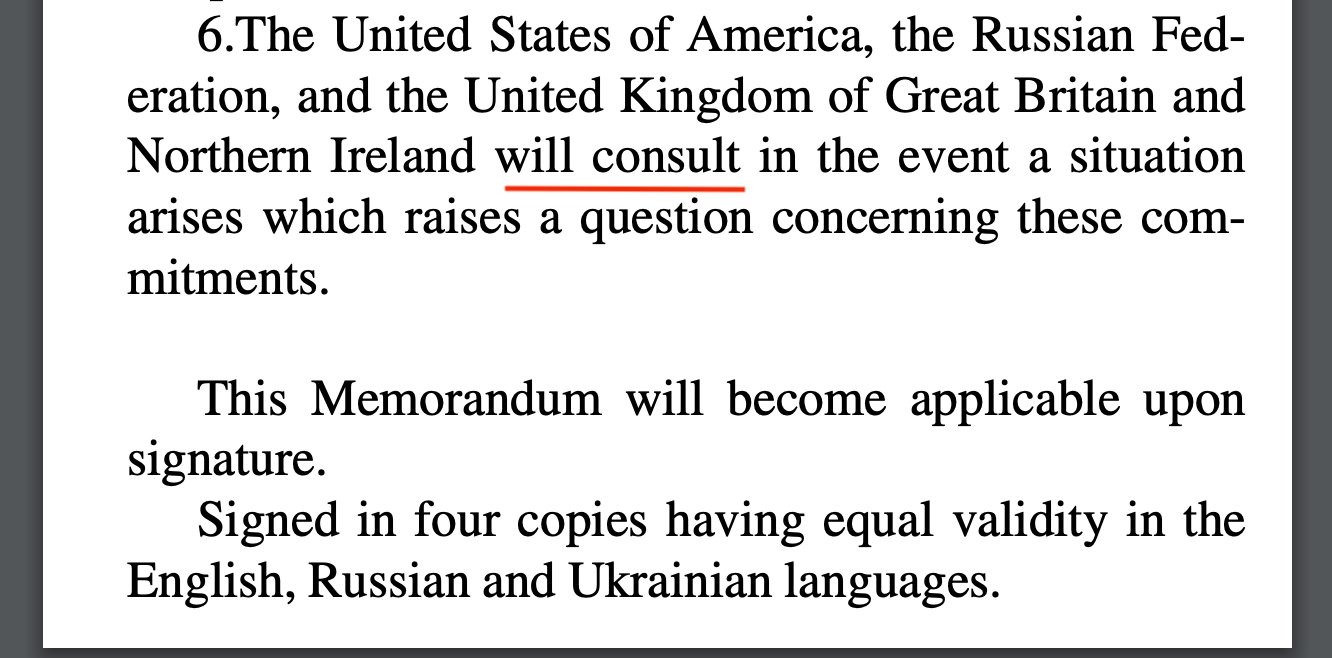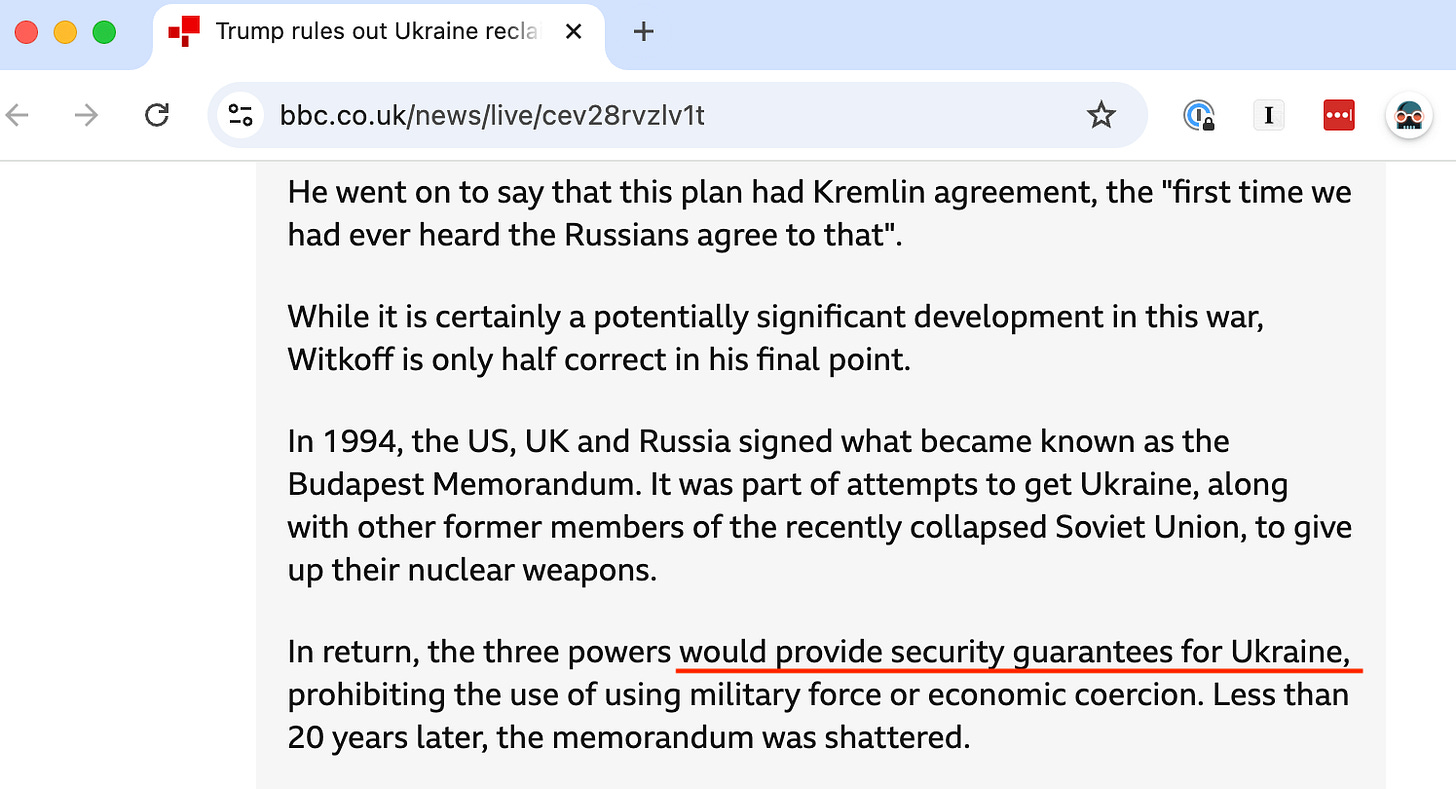The Budapest Memorandum was not a security guarantee (the BBC: please take note)
Expect to see lots of writing about the “failure of the Budapest Memorandum security guarantee” in the next 24 hours.
But remember: 90%+ of journalists writing about the Budapest Memorandum likely have not ever read the document – despite it being only 2.5 pages.
My colleague Sang-Hwa Lee spent two months last year researching it, and studying its construction.
The “too long/didn’t read”, from Professor Stephen Kotkin, the world’s most eminent Soviet scholar, who wrote back to us last year offering his view:
Ukraine did not give up “its” nuclear weapons. Ukraine had no such weapons. Russia had nuclear weapons in Ukrainian soil. Ukraine gave up Russia’s ability to fire nuclear weapons from the territory of Ukraine. Command and control was always in Moscow. It is absurd that this point is not a given in public discourse.
And there were no security guarantees. It was a Clinton-era ruse – typical of that administration in many ways – to use elements of pretense to get those nukes out of Ukraine any way they could. The U.S. assumed no responsibilities.
All that the Budapest Memorandum states is: “The United States of America, the Russian Federation, and the United Kingdom of Great Britain and Northern Ireland will consult in the event a situation arises which raises a question concerning these commitments.” The text:
From Sang-Hwa’s research: what actually happened – and why there’s confusion (it did take several weeks of trawling through Ukrainian parliamentary archives to discern this)…
- President Clinton did not want to offer Ukraine a US security guarantee. It would have required two-thirds Senate approval (as any actual US security guarantee, like Korea’s, does), which he would never have gotten.
- But Ukraine required a “security guarantee” to give up the nuclear weapons on its territory (what the agreement is actually about).
So what did negotiators do?
The document has different translations.
- The English (American) version notes security “assurances” (not meaning anything substantive, and not in any way binding).
- The Ukrainian text contains wording security “guarantees” – even though a precise translation for “assurances” exists in Ukrainian.
Sang-Hwa spoke with US mediators who were in the room and negotiated this in 1994. It was intentional.
the US made it clear “guarantees” should be understood as “assurances” in the English sense, and that this understanding was confirmed by the Ukrainian and Russian delegations.
The translations are intentionally different. (I’m not making this up.) It was the only way to square the circle – to get the world’s then-third largest stockpile of nuclear weapons out of Ukraine, bypassing the US Senate, and placating the Ukrainian Rada.
Full article detailing this spectacular history: https://listeningto.org/ukraine/budapest-memorandum/
Please write to and correct any journalist who says “the Budapest Memorandum was a security guarantee” when trying to criticise Special Envoy Witkoff and the US offer of an Article 5-style security guarantee today.
The BBC this morning:
Events are happening so fast, journalists writing on this simply have not had time to study the actual documents. Mainstream understanding of what the 1994 Budapest Memorandum was is fundamentally incorrect. To prevent media attempts at undermining US diplomacy today, many more people need to be aware of the reality of the 1994 document – and how a US Article 5 pledge today is significantly greater.



